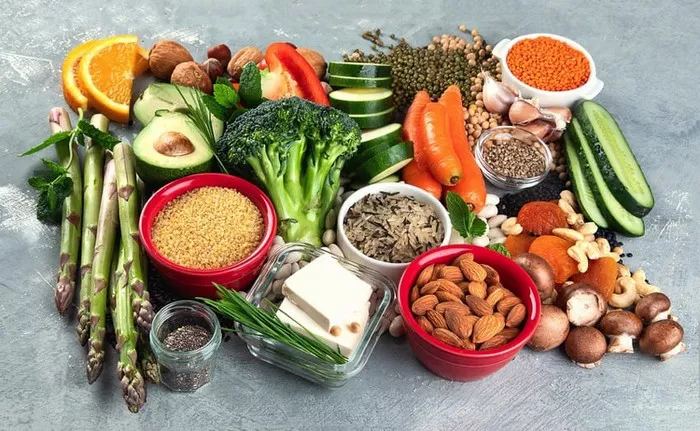The relationship between protein consumption and weight gain is a topic that has sparked much debate and speculation in the realm of nutrition and fitness. While protein is essential for various bodily functions, including muscle repair and growth, there is a common misconception that increasing protein intake inevitably leads to weight gain. In this comprehensive guide, we will delve into the science behind protein consumption, its role in weight management, potential mechanisms for weight gain, and evidence-based recommendations for optimizing protein intake for overall health and wellness.
Understanding Protein Consumption
Importance of Protein
Protein is one of the three macronutrients essential for human health, alongside carbohydrates and fats. It plays a crucial role in various physiological processes, including:
Muscle Repair and Growth: Protein provides the building blocks necessary for repairing and building muscle tissue, making it essential for individuals engaged in physical activity or strength training.
Hormone Regulation: Protein is involved in the synthesis of hormones, enzymes, and neurotransmitters that regulate metabolism, appetite, and satiety.
Immune Function: Protein plays a role in the functioning of the immune system, helping to protect the body against infections and diseases.
Tissue Structure: Protein is a structural component of cells, tissues, organs, hair, skin, and nails, contributing to their strength, integrity, and function.
Dietary Sources of Protein
Protein is found in a wide variety of foods, both animal-based and plant-based. Animal sources of protein include meat, poultry, fish, eggs, and dairy products, while plant-based sources include legumes, nuts, seeds, tofu, tempeh, and soy products. Including a variety of protein-rich foods in the diet ensures adequate intake of essential amino acids, the building blocks of protein that the body cannot produce on its own.
Protein and Weight Management
Protein and Satiety
One of the key reasons protein is often associated with weight management is its effect on satiety, or feelings of fullness and satisfaction after a meal. Protein-rich foods have been shown to increase satiety and reduce appetite, leading to decreased calorie intake and potential weight loss.
Protein and Metabolism
Protein has a higher thermic effect of food (TEF) compared to carbohydrates and fats, meaning it requires more energy to digest, absorb, and metabolize. This increased energy expenditure associated with protein digestion may contribute to a higher metabolic rate and increased calorie expenditure, potentially aiding in weight management and fat loss.
Protein and Lean Body Mass
Increasing protein intake, particularly in combination with resistance training or strength training, can help preserve and build lean body mass. This is beneficial for individuals looking to improve body composition, increase muscle mass, and reduce body fat percentage. Maintaining or increasing lean body mass is associated with improved metabolic health, increased calorie expenditure, and enhanced physical performance.
Does Increasing Protein Cause Weight Gain?
The Calorie Balance Equation
Weight management ultimately boils down to the balance between calorie intake and calorie expenditure. To gain weight, an individual must consume more calories than they expend, leading to a calorie surplus and subsequent weight gain. Conversely, to lose weight, an individual must consume fewer calories than they expend, leading to a calorie deficit and subsequent weight loss.
Protein and Weight Gain: Myth vs. Reality
The idea that increasing protein intake inherently leads to weight gain is a misconception that oversimplifies the complex nature of weight management. While excess calorie intake from any macronutrient, including protein, can contribute to weight gain, protein itself is not inherently fattening.
Potential Mechanisms for Weight Gain
Excess Calorie Intake
One potential mechanism by which increasing protein intake could lead to weight gain is through excess calorie consumption. Protein-rich foods such as meat, poultry, and dairy products often contain higher amounts of calories compared to non-protein foods like fruits and vegetables. Consuming large quantities of protein-rich foods without considering overall calorie intake could lead to a calorie surplus and subsequent weight gain.
Protein Supplements and Calorie Density
Protein supplements such as protein powders or bars are convenient options for increasing protein intake, particularly for individuals with higher protein requirements or dietary restrictions. However, some protein supplements may be highly processed and calorie-dense, containing added sugars, fats, and other ingredients that contribute to excess calorie intake and potential weight gain.
Protein-Enriched Foods
Food products marketed as “high-protein” or “protein-enriched” may also contribute to excess calorie intake if consumed in large quantities. While incorporating protein-rich foods into the diet is beneficial for satiety and muscle repair, relying too heavily on processed protein-enriched foods may lead to unintended weight gain due to their calorie density and potential additives.
Evidence-Based Recommendations
1. Focus on Whole Food Sources
When increasing protein intake, prioritize whole food sources of protein such as lean meats, poultry, fish, eggs, dairy products, legumes, nuts, seeds, and tofu. These foods provide essential nutrients, fiber, and other beneficial compounds in addition to protein, supporting overall health and wellness.
2. Consider Total Calorie Intake
Be mindful of your total calorie intake when increasing protein consumption. Pay attention to portion sizes and overall energy balance to avoid unintentional weight gain. Tracking food intake using a food diary or mobile app can help you monitor your calorie intake and make adjustments as needed.
3. Incorporate Protein into Balanced Meals
Include protein-rich foods in each meal and snack to promote satiety, regulate blood sugar levels, and support muscle repair and growth. Aim to distribute your protein intake evenly throughout the day rather than consuming large amounts of protein in one meal.
4. Pair Protein with Fiber and Healthy Fats
Combine protein-rich foods with sources of fiber, such as fruits, vegetables, whole grains, and legumes, as well as healthy fats, such as avocados, nuts, seeds, and olive oil. This balanced approach to meal planning can enhance satiety, promote nutrient absorption, and support overall health and well-being.
5. Consider Individual Needs and Goals
Individual protein requirements vary based on factors such as age, sex, weight, activity level, and health status. Consult with a registered dietitian or healthcare provider to determine your specific protein needs and develop a personalized nutrition plan tailored to your goals and preferences.
Conclusion
The belief that increasing protein consumption inevitably leads to weight gain is a common misconception that oversimplifies the complex nature of nutrition and weight management. While excess calorie intake from any macronutrient can contribute to weight gain, protein itself is not inherently fattening. Increasing protein intake can support weight management, muscle repair, and overall health when combined with a balanced diet and active lifestyle. By prioritizing whole food sources of protein, monitoring total calorie intake, and considering individual needs and goals, individuals can optimize their protein intake for optimal health and wellness without fear of weight gain.
[inline_related_posts title=”You Might Be Interested In” title_align=”left” style=”list” number=”6″ align=”none” ids=”8902,8817,8724″ by=”categories” orderby=”rand” order=”DESC” hide_thumb=”no” thumb_right=”no” views=”no” date=”yes” grid_columns=”2″ post_type=”” tax=””]
































